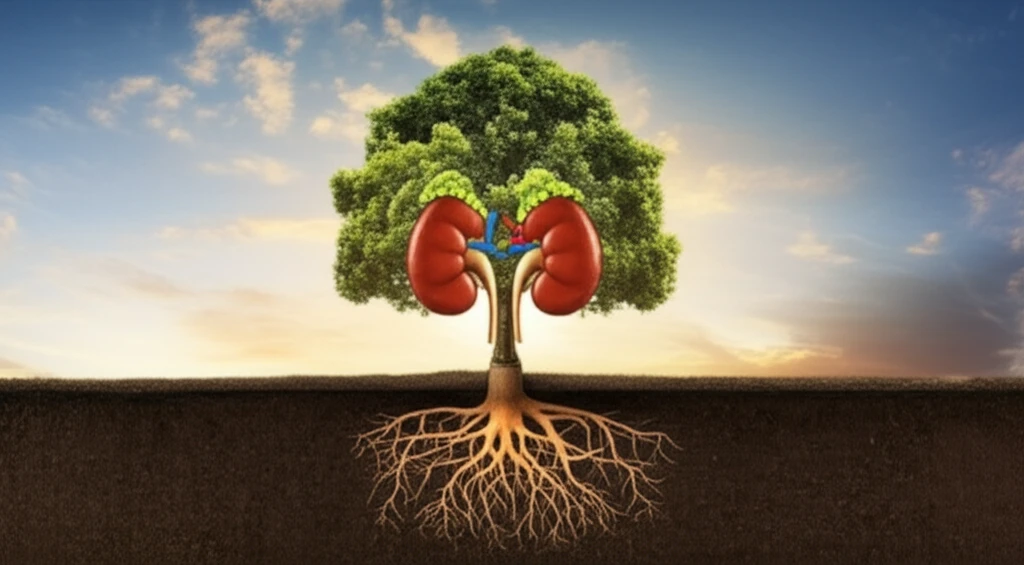
Chronic Kidney Disease: New Insights and Management Strategies
"Explore the latest advancements in understanding and treating chronic kidney disease, focusing on innovative approaches and practical advice for patients and caregivers."
Chronic Kidney Disease (CKD) is a global health challenge, affecting millions worldwide. As a progressive condition characterized by a gradual loss of kidney function, CKD can lead to serious complications, including cardiovascular disease, anemia, and bone disorders. Early detection and effective management are crucial for slowing disease progression and improving patient outcomes.
Recent advances in understanding the pathophysiology of CKD have paved the way for innovative diagnostic and therapeutic strategies. Researchers are exploring novel biomarkers for early detection, personalized treatment approaches based on genetic and molecular profiling, and targeted therapies to address specific disease mechanisms.
This article synthesizes the latest research findings and expert recommendations to provide a comprehensive overview of CKD management. We will delve into key areas such as risk factor modification, blood pressure control, proteinuria reduction, and the management of complications. Our aim is to empower patients, caregivers, and healthcare professionals with the knowledge and tools necessary to navigate the complexities of CKD and improve the lives of those affected.
Understanding the Role of Diet and Nutrition in CKD Management

Diet plays a crucial role in managing CKD. As kidney function declines, the kidneys become less efficient at removing waste products and excess fluids from the body. Dietary modifications can help reduce the burden on the kidneys, prevent the buildup of toxins, and maintain electrolyte balance.
- Protein Restriction: Limiting protein intake can reduce the production of nitrogenous waste products, such as urea, which can accumulate in the blood and cause symptoms like fatigue, nausea, and loss of appetite. The degree of protein restriction should be individualized based on the stage of CKD, nutritional status, and overall health.
- Sodium Control: Reducing sodium intake can help lower blood pressure and prevent fluid retention, both of which are common complications of CKD. Patients should be advised to avoid processed foods, limit the use of salt in cooking, and read food labels carefully.
- Phosphorus Management: High phosphorus levels can contribute to bone disease and cardiovascular complications in CKD patients. Dietary phosphorus restriction and the use of phosphate binders (medications that bind phosphorus in the gut) may be necessary to maintain phosphorus levels within the target range.
- Potassium Balance: Potassium levels can fluctuate in CKD patients, leading to either hyperkalemia (high potassium) or hypokalemia (low potassium). Patients should work with their healthcare provider or a registered dietitian to develop a personalized potassium management plan based on their individual needs and laboratory values.
- Fluid Management: Fluid restriction may be necessary in patients with advanced CKD who experience fluid overload or edema. The amount of fluid restriction should be individualized based on urine output, weight changes, and other clinical factors.
Empowering Patients with Knowledge and Support
Living with CKD can present numerous challenges, both physically and emotionally. Access to reliable information, support groups, and educational resources can empower patients to take control of their health and improve their quality of life.
Healthcare professionals play a vital role in providing comprehensive care and support to CKD patients. This includes regular monitoring of kidney function, medication management, dietary counseling, and psychosocial support. A multidisciplinary approach involving nephrologists, primary care physicians, nurses, dietitians, and social workers is essential for optimizing patient outcomes.
By staying informed about the latest advances in CKD research and management, patients, caregivers, and healthcare professionals can work together to slow disease progression, prevent complications, and improve the lives of those affected by this chronic condition.
